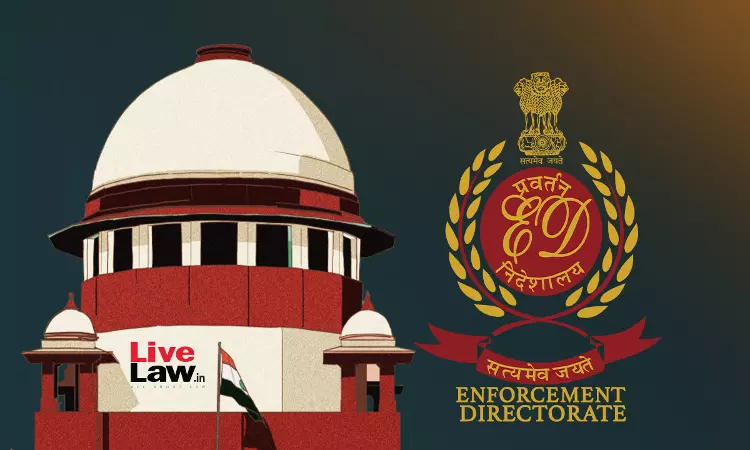Can ED Attach Property Without FIR For Predicate Offence? Supreme Court To Examine In TN Sand Mining Case
Anmol Kaur Bawa
2 Dec 2024 3:55 PM IST

Next Story
2 Dec 2024 3:55 PM IST
The Supreme Court is set to examine the issue of whether the Enforcement Directorate can attach a property in the absence of any FIR in relation to the scheduled offence with which the property is allegedly related. The bench of Chief Justice Sanjiv Khanna and Justice Sanjay Kumar was hearing the ED's challenge to the Madras High Court judgment which restrained the ED from carrying...
